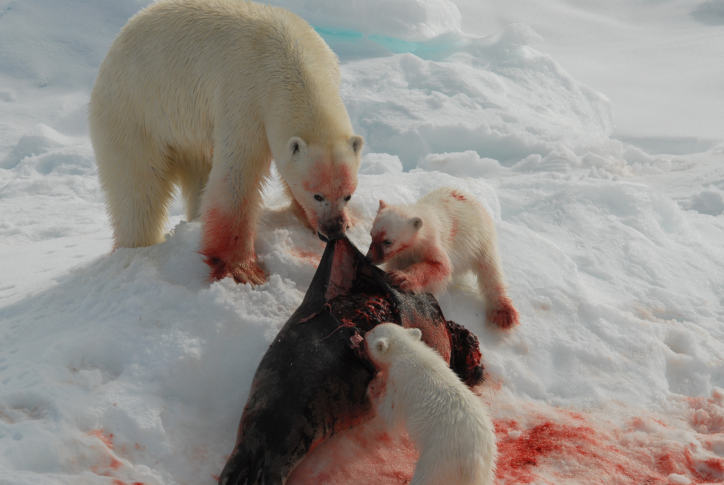By Kevin Mooney
Polar bears would not exist today without climate change, and they may even be thriving because of current climate trends. That’s what the co-founder of Greenpeace told scientists, economists, and academics who took part in an international conference challenging alarmist claims about global warming.
Patrick Moore, a Canadian environmentalist who previously served as president of Greenpeace Canada and director of Greenpeace International, was one of several speakers featured as part of the Heartland Institute’s conference on the topic held this month.
During his talk, Moore described some of the events that helped gain notoriety for Greenpeace, such as the campaigns directed against nuclear testing and whale hunting dating back to the 1970s. He eventually felt compelled to leave Greenpeace when activists began to lose sight of their humanitarian mission while engaging in campaigns that were not rooted in sound science, he explained.
“At a philosophical level, Greenpeace had started with a strong humanitarian orientation to save human civilization from nuclear war,” Moore said. “That meant we actually liked people. That’s the peace in Greenpeace. The green, of course, was the environment. … I decided to fashion myself a sensible environmentalist basing my positions on science and logic rather than sensationalism, misinformation, and fear.”
Moore is now a director for the CO2 Coalition, a nonprofit group that includes scientists devoted to highlighting the benefits of carbon dioxide. He is also the author of a new book titled Fake Invisible Catastrophes and Threats of Doom, which takes aim at what Moore described as “scare stories” that cannot be justified on the basis of scientific observation and verification.
This is where the polar bears come into play. While environmental activist groups continue to circulate information based on the idea that “human-caused climate change” is a threat to the species, Moore sees a natural, dynamic evolutionary process at work.
“Polar bears would not exist if weren’t for climate change,” Moore said. “They’re saying they’re going to disappear because of climate change. But how did polar bears get here? They evolved from the Eurasian brown bear.” It was during the Pleistocene Epoch that the Eurasian brown bear experienced “divergent evolution” with ice forming in the Arctic for the first time in 200 million years, Moore continued. Some of the bears ventured out onto the ice to hunt for seals, and as the ice gradually receded, those bears became isolated from the “terrestrial population” in Northern Europe and Russia.
“They began to diverge into two different species,” Moore said. “That’s why there would be no polar bears today if not for the Pleistocene ice age and the change in climate that occurred going into it.”
Moore also suggested there is good reason to view contemporary climate conditions as beneficial to polar bears. That’s because the reduction in sea ice during the summer months enables the sun to shine through the opening in the ocean in a manner that is beneficial to the marine life that supports the polar bear population, he said.
While commenting on energy policy, Moore called for the development of more nuclear power plants to help reduce fossil fuel use. He estimated that there are about 440 plants worldwide, but he would like to see something in the neighborhood of 4,000. Moore said he favors reducing fossil fuel use not because of carbon dioxide emissions, which he views as beneficial, but because fossil fuels should be conserved for energy needs that only those energy sources can supply.
“Fossil fuels are the most important energy for making civilization,” Moore said. In fact, he added, fossil fuels are “causing us to live longer and live better.”
Kevin Mooney (@KevinMooneyDC ) is a contributor to the Washington Examiner’s Beltway Confidential blog. He is an investigative reporter in Washington, D.C., who writes for several national publications.
This commentary was originally published by The Washington Examiner and is republished with the permission of the author.
